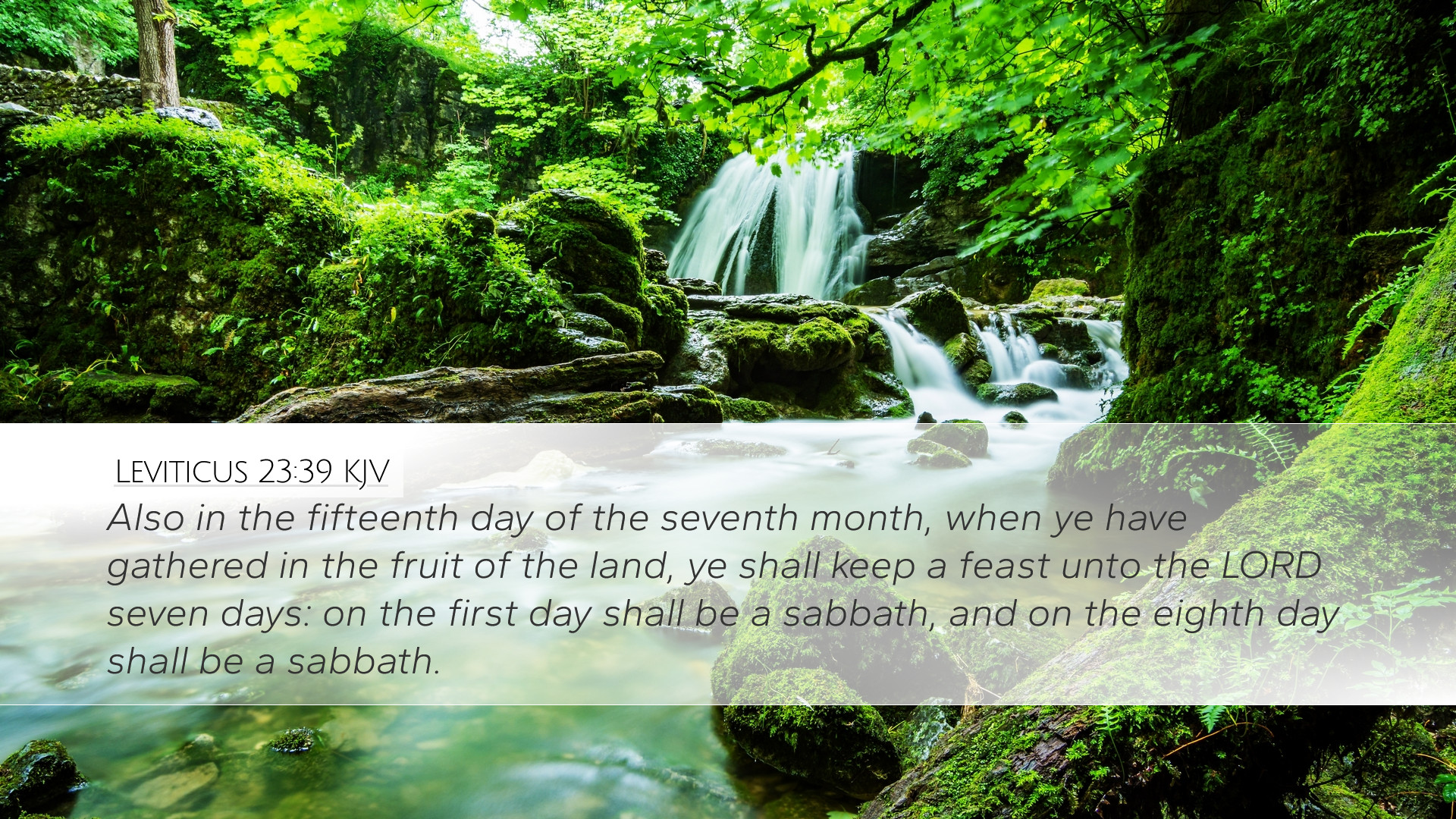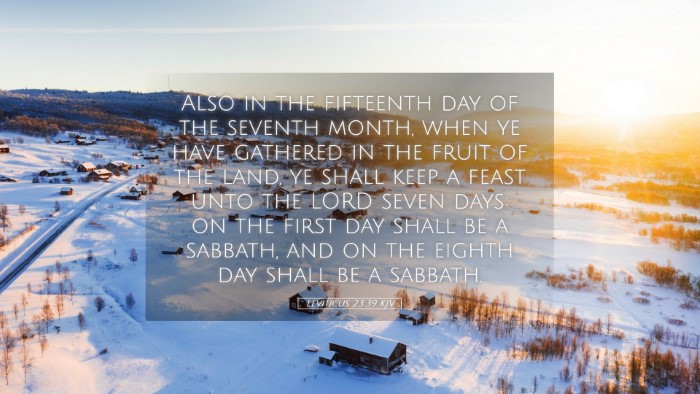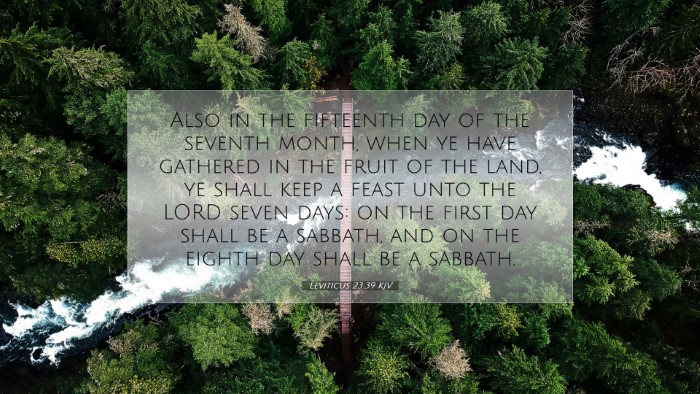Commentary on Leviticus 23:39
Verse: "Also in the fifteenth day of the seventh month, when ye have gathered in the fruit of the land, ye shall keep a feast unto the Lord seven days: on the first day shall be a sabbath, and on the eighth day shall be a sabbath." (Leviticus 23:39)
Introduction
The verse encapsulates a significant aspect of Israel's worship and agricultural calendar, marking the Feast of Tabernacles (Sukkot). This feast not only commemorated the harvest but also symbolized God's providence and the Israelites' journey through the wilderness.
Contextual Overview
The Book of Leviticus is primarily concerned with the holiness of God and the ways His people are to live in response to Him. Chapter 23 outlines the various feasts that God instituted, specifying the timing, observance, and significance of each feast. Leviticus 23:39 is situated within these guidelines regarding the Feast of Tabernacles, highlighting its importance as a community celebration.
Commentary Insights
Matthew Henry's Commentary
Matthew Henry emphasizes the joyful nature of this feast. His insights detail that the word of the Lord not only promotes a remembrance of His provision during the Israelites’ wandering in the desert but also celebrates the harvest. Henry points out that this feast serves as a time for rejoicing in God's blessings and a reminder of the transient nature of earthly dwellings.
Albert Barnes' Commentary
Albert Barnes points out the significance of the timing of the Feast of Tabernacles, occurring after the harvest. He notes the instruction to celebrate this feast for seven days, underscoring its importance as a time of thanksgiving and celebration of God's gracious provision. Barnes also highlights the sabbatical nature of the first and eighth days, which were marked by sacred rest and assembly.
Adam Clarke's Commentary
Adam Clarke sheds light on the ceremonial aspects of the feast, relating it to agricultural cycles. He explains that the Feast of Tabernacles includes specific offerings and rituals, enhancing the community's understanding of their dependence on God's providential care. Clarke draws attention to the spiritual significance of dwelling in temporary shelters, symbolizing reliance on God rather than physical structures.
Theological Implications
While the primary focus of Leviticus 23:39 is on the Israelites, the theological implications extend to contemporary believers. The call to celebrate God's provision resonates with New Testament teachings that emphasize thankfulness and recognition of God's continuous blessings in our lives. This feast can also serve as a reminder of the temporary nature of earthly life and the eternal dwelling that believers anticipate.
Application for Today
- Community Celebration: Just as the Israelites gathered to celebrate, churches today are called to come together in thanksgiving for God’s blessings.
- Remembrance: Believers can reflect on their spiritual journey and God’s faithfulness in their lives, drawing parallels to the wilderness experience.
- Dependence on God: The theme of reliance on God's provision challenges contemporary lifestyles rooted in self-sufficiency and encourages a posture of humility and trust.
- Temporary Dwelling: The acknowledgment of our transient existence can prompt a deeper examination of our priorities and an increased longing for our eternal home.
Conclusion
Leviticus 23:39 stands as a profound reminder of God's faithfulness and providence. By studying this verse alongside insights from historical commentaries, contemporary readers can glean practical and theological truths that guide worship and daily living. The Feast of Tabernacles can inspire a spirit of gratitude, a communal bond, and an assurance of our reliance on God throughout all seasons of life.


